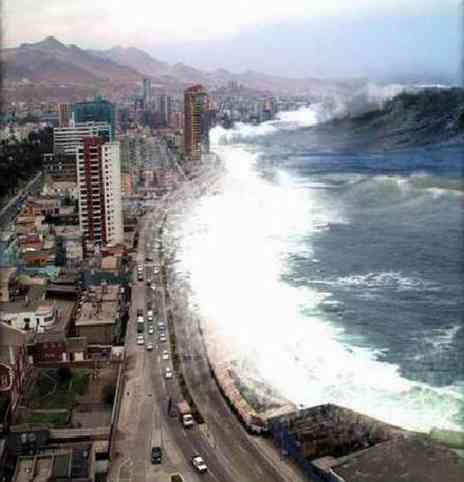
Quick action urged on global warming
NASA scientist says next decade crucial to Earth's habitat
By TOM GARDNER
Associated Press
http://www.montereyherald.com/mld/montereyherald/news/16434089.htmMAMMOTH LAKES - The effects of global warming are being felt around the world, and unless international efforts are launched within the next 10 years, species will disappear and the Earth will be a vastly less habitable planet by the end of the century, said NASA scientist James E. Hansen.
''Global warming is already starting, and there's going to be more of it. I think there is still time to deal with global warming, but we need to act soon. Humans now control global climate, for better or worse,'' Hansen said Tuesday at an annual gathering of meteorologists.
Hansen, who came under fire from the White House after a December 2005 lecture in which he called for prompt reductions in greenhouse gas emissions to slow global warming, delivered his keynote speech by satellite at the 14th annual Operation Sierra Storm meeting at Mammoth Mountain Ski Area. Global warming is the theme of the conference.
Hansen, who said he was not speaking for NASA, said that after the warming of the past three decades, the world is within 1 degree Celsius of its warmest period in the past 400,000 years. He predicted that if greenhouse gas emissions continue at the same rate, the warming this century will approach 3 degrees Celsius, or about 5 degrees Fahrenheit.
He forecast that such a change would eliminate up to half the species on Earth and would melt polar ice caps. Subsequently rising ocean levels would inundate Florida, most of Louisiana and much of the East Coast, Hansen said.
''We don't know how long it would take for that to happen,'' he said.
He said warning signs are appearing in Greenland, where ice is melting twice as fast as it was five years ago. Ocean levels globally are edging up about 3.5 millimeters a year.
Hansen said samples of the Antarctic ice cap spanning 400,000 years show almost parallel changes in temperatures and greenhouse gasses -- primarily carbon dioxide and methane that until now were produced by natural changes in the Earth.
''The amount of greenhouse gas in the atmosphere is now completely under the control of humans,'' he said. ''Another Ice Age cannot occur unless humans become extinct.''
Critical to the reduction of greenhouse gas is international agreement to curtail the use of fossil fuels -- the primary source of carbon dioxide and other pollutants, he said.
Hansen's call came a day after the chief of the United Nations' effort against climate change said that despite widespread recognition of the seriousness of global warming, a lack of leadership has created a sense of helplessness.
Yvo de Boer, executive secretary of the U.N. Framework Convention on Climate Change, said during a visit to Paris that he will ask the new U.N. secretary-general to coordinate a worldwide response and organize a conference of world leaders.
Such a meeting would be a first step toward a post-Kyoto agreement on climate change, he said. The 1997 Kyoto Protocol requires 35 industrial nations to cut production of globe-warming greenhouse gases by an average 5 percent below 1990 levels by 2012, when the accord expires.
In his speech, Hansen urged development of more efficient technologies to sharply reduce carbon emissions, use of coal only in power plants that scrub the emissions, and a gradual increase in taxes on fossil fuels to discourage use.
He touched briefly on his dealings with the Bush administration, saying scientists have ethical responsibilities much the same as doctors have to their patients.
The Commerce Department and NASA launched an investigation in November into whether the administration tried to prevent government scientists from speaking freely about climate change.

No comments:
Post a Comment